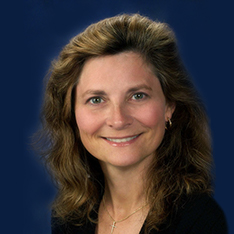Denise Bradley remembers the moment as if it was yesterday. She was changing clothes when she felt a lump in her left breast. It seemingly appeared out of nowhere. “It was screaming at me and it hurt,” she says.
Bradley was just 42. She had not yet had her first mammogram, but she knew this was something she needed to have checked out. Her doctor didn’t think it was anything to worry about. However, he scheduled her for a mammogram just to be safe.
The mammogram probably saved her life. It identified an aggressive, malignant tumor.
“You initially think you are going to die. I wondered, who will take care of my three daughters? Will my husband remarry? Will the new wife be good to my kids?”
When to start mammogram screenings
The American Cancer Society estimates that like Bradley, 1 in 8 U.S. women will go through the frightening experience of being diagnosed with breast cancer during their lifetime. The survival rate, however, is very good if you find the cancer early.
That’s where timely screenings are critical.
The American Radiological Association recommends women begin having annual mammograms at age 40. Women who are at higher risk for breast cancer should begin earlier.
Dr. Pam Otto, the lead radiologist for breast imaging at University Health, says you should talk to your physician about earlier screenings if your mother, sister or daughter had breast cancer. You should also be screened at a young age if you have a genetic mutation that predisposes you to cancer or you have been exposed to specific types of radiation.
Dr. Otto also urges all women, regardless of age, to practice “breast health awareness.”
“When you are in the shower or taking a bath, notice if you feel something different. Pay attention. Don’t ignore it,” Dr. Otto says.
Breast cancer symptoms
See a doctor right away if you notice any of these changes:
- A lump or swelling
- Skin irritation or dimpling
- Nipple pain or the nipple turning inward
- Redness or scaly nipples or breast skin
- A discharge other than breast milk
Mammogram clinics are safe to go to during the pandemic
The number of women who have skipped their mammograms during the COVID-19 pandemic alarms Dr. Otto. She says mammogram screenings in April 2020 plummeted 89% across the country compared to April 2019. The number of newly diagnosed breast cancers that typically result from those screenings dropped 48%. That means there are women with malignant tumors who are not getting early treatment, and their cancers are growing undetected.
“We know they’re out there. We just haven’t diagnosed them,” she says.
More women are scheduling screenings now. Dr. Otto wants to reassure those still concerned about exposure to the virus that medical teams have taken extensive precautions to make sure mammogram locations and equipment are sterile and virus-free.
The clinics she oversees for University Health require face masks for everyone, extra PPE for technicians and deep cleanings between mammograms. She has added extra waiting rooms so there is plenty of physical distancing.
Dr. Otto says the dangers associated with not getting a timely mammogram are far greater than anything you will encounter at a screening site.
Early screenings lead to good outcomes
For Denise Bradley, fighting breast cancer took a toll, but there is a lot to celebrate.
She decided to have a bilateral mastectomy along with reconstructive surgery. Now she has passed the important five-year mark for being cancer free.
Her message to women – get annual mammograms, pay attention to your body and don’t let fear keep you from getting needed care.
“Feel confident in knowing that if you find something, there are targeted treatments backed by a lot of research,” Bradley says.
Scheduling a mammogram is easy. If you are a University Health patient you can quickly make an appointment through your online MyChart account. You can also call the central scheduling office at 210-358-2725; Mays Cancer Center, home to the UT Health MD Anderson Cancer Center at 210-644-2900; or book an appointment with the mobile mammography unit by registering online at healthyUexpress.com.




